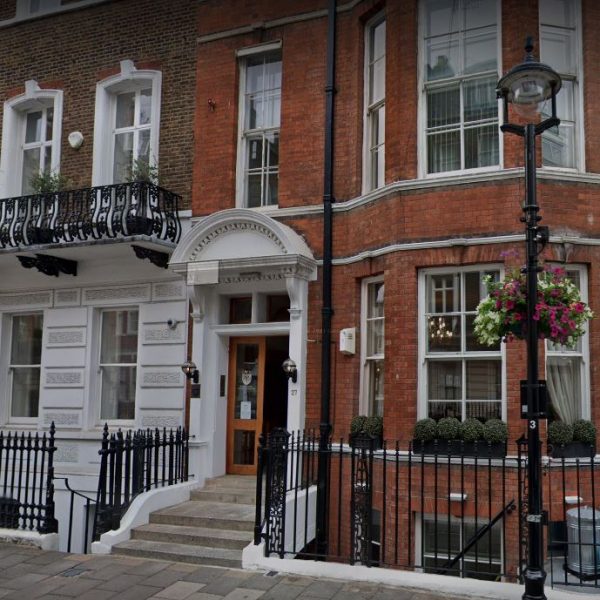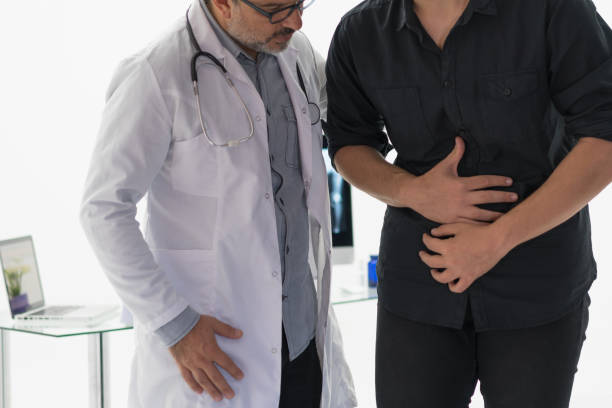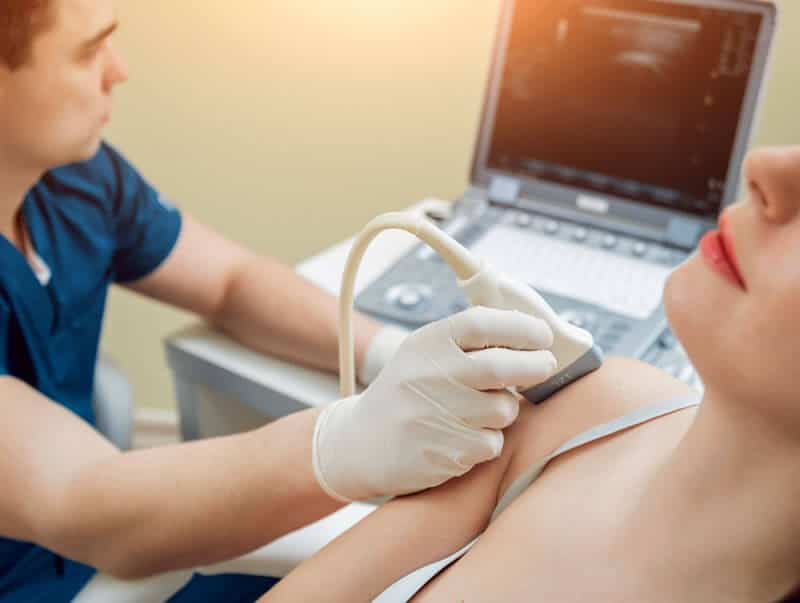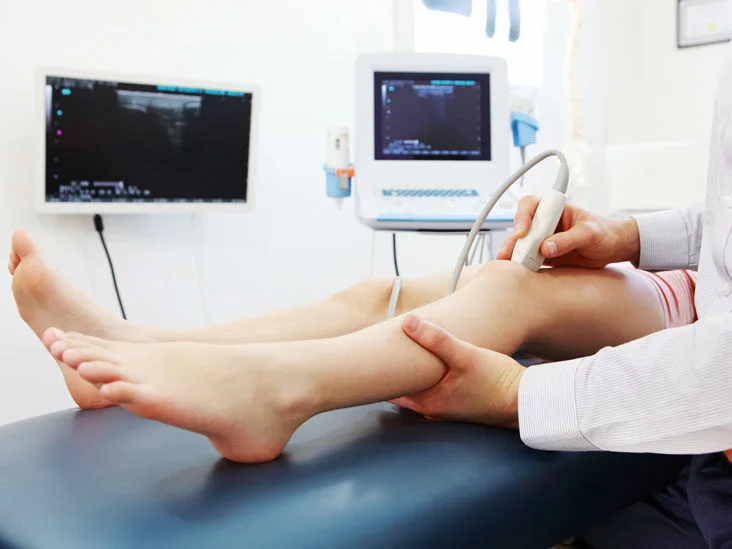Abdominal Aorta Aneurysm (AAA)-Female
£175
Abdominal aortic aneurysm (AAA) screening is typically focused on males in the NHS, as they have a higher prevalence of this condition. However, AAA screening in females is also important for several reasons as many scientific researches have shown;
- Risk Factors: Although the incidence of AAA is lower in females, certain risk factors can increase the likelihood of developing an AAA, which can result in sudden Aortic artery rupture and death. These include advanced age, smoking history, high blood pressure, atherosclerosis, and a family history of AAA.
- Under-diagnosis: AAA in females is often under-diagnosed due to the perception that it primarily affects males. By implementing screening programs that include females, healthcare providers can ensure that women at risk are appropriately identified.
- Potential Consequences: AAA can have severe consequences if left untreated, including rupture, internal bleeding, and a high mortality rate. Early detection through screening allows for proactive management, such as lifestyle modifications, monitoring, or surgical intervention, which can prevent rupture and save lives.
- Family Planning: AAA screening becomes particularly relevant for females who are considering pregnancy. Pregnancy places increased stress on the cardiovascular system, and undiagnosed AAA may pose risks during pregnancy and delivery.
- Awareness and Education: Expanding AAA screening to include females raises awareness about the condition and encourages women to be proactive about their vascular health. It provides an opportunity to educate women about risk factors, symptoms, and the importance of early detection.
Healthcare providers need to consider individual risk profiles and discuss the benefits and implications of AAA screening with their female patients, promoting proactive healthcare and preventive measures.
1. Why do I need to have an abdominal aorta aneurysm ultrasound scan?
The main cause of the AAA is unknown, and the AAA is asymptomatic. Obesity, high blood pressure, smoking, high cholesterol, male gender, and age over 65 years old are the most critical risk factors.
Some of the patients with severely dilated AAA are symptomatic.
You may need to have AAA ultrasound scan if you have the following symptoms, these symptoms are;
- Intense back or abdominal pain
- Pulsation of abdominal Aorta in the middle of the abdomen
- High pulse rate
- Nausea and vomiting
- Excessive sweating
- Shock
2. What does the abdominal aorta aneurysm ultrasound scan include?
In this scan we will
- Evaluate the Abdominal Aorta, Common iliac, External and internal iliac, and common femoral arteries.
- Take your relevant medical history
- Provide 10 minutes consultation
- Explain all findings during and after your ultrasound scan
- Write an official scan report within 24 hrs, with appropriate images included in the report
- Recommend a follow-up ultrasound scan if necessary
- Offer GP or specialist referral and a Blood Test if needed
3. What is the most common finding of an abdominal aorta aneurysm ultrasound scan?
- There are four possible results:
- No Aneurysm, the patient doesn't need to have ant treatment or monitoring
- Small AAA, in just over 1% of men, Annual scan is recommended
- Medium AAA, about 0.5% of men, every three months scan is recommended
- Large AAA, about 0.1% of men, the patient will be referred to a specialist
- Aneurysm or stenosis(narrowing) in the common, external and internal iliac, and common femoral arteries
And Incidental finding of;
- cancer or other life-threatening diseases in adjacent solid organs like; Liver, kidney, spleen, and pancreas
- Fluid collection in the abdominal cavity
- Enlarged para-vertebral lymph nodes or tumours
4. Would I need a blood test?
5. What kind of preparation do I need?
- You will be asked to be fast at least 4-6 hours before your ultrasound scan appointment. (You are not allowed to drink Tea or Coffee, or eat porridge)
- You must drink at least one litre of water one hour before your appointment.
- If you have diabetes, please eat and drink as usual.
- If you are on medication, please take your medicines on time.
6. What happens during the abdominal aorta aneurysm ultrasound scan?
Our Ultrasound Specialists will explain the procedure before your scan. You will be guided to lie on your back on the examination couch. A small amount of water-based gel will be applied to your abdomen. Our specialist will move the probe on your skin to produce diagnostic ultrasound images. You will not feel any discomfort during your ultrasound scan. An Abdominal aorta aneurysm ultrasound scan is regularly completed within 15 minutes. Our Sonographer will recommend the best course of action, depending on the ultrasound scan findings.
7. When will I get the results?
You will receive your results verbally after the scan. However, the Sonographer will examine the relevant images after your appointment and prepare a written report after your scan or within 24 hours with any recommended actions. The report will be sent to you so that you can discuss the findings with your doctor, if required.
8. What are the risks of an abdominal aorta aneurysm ultrasound?
There are no risks or side effects associated with the abdominal aorta aneurysm ultrasound scan. Ultrasound does not use any radiation, which is why doctors prefer to use them to check on developing babies in pregnant women.
Private Ultrasound Clinic
All part of our services, from our specialists to our technology and, of course, our clinic, is designed to deliver the greatest possible experience for all of our patients and visitors.
We are conveniently located a stone throw famous Harley Street of London and our clinic is a place where you may feel safe and clean, comfortable, and reassuring environment.
Address:
Private Ultrasound Clinic, 27 Welbeck St, London W1G 8EN




